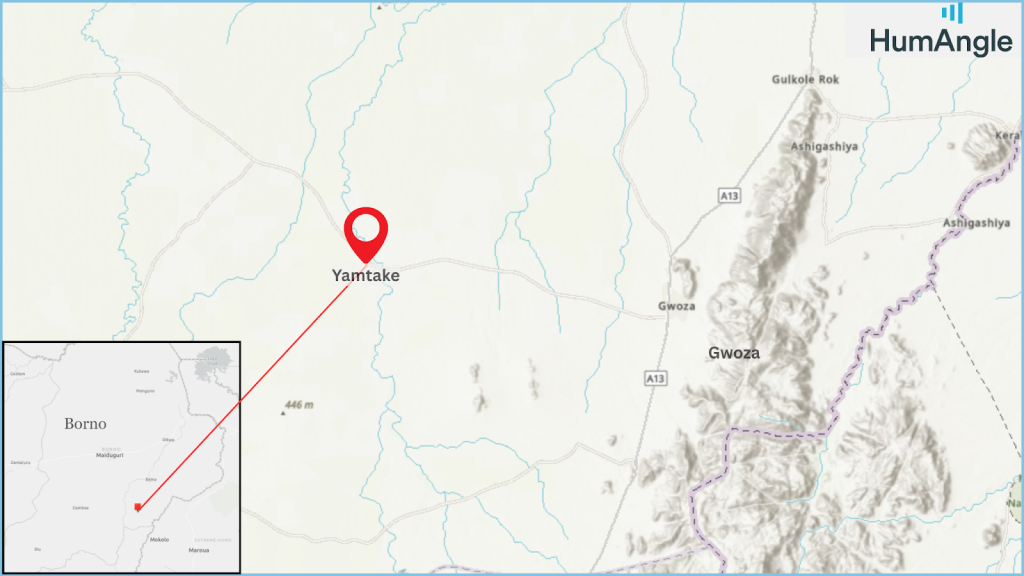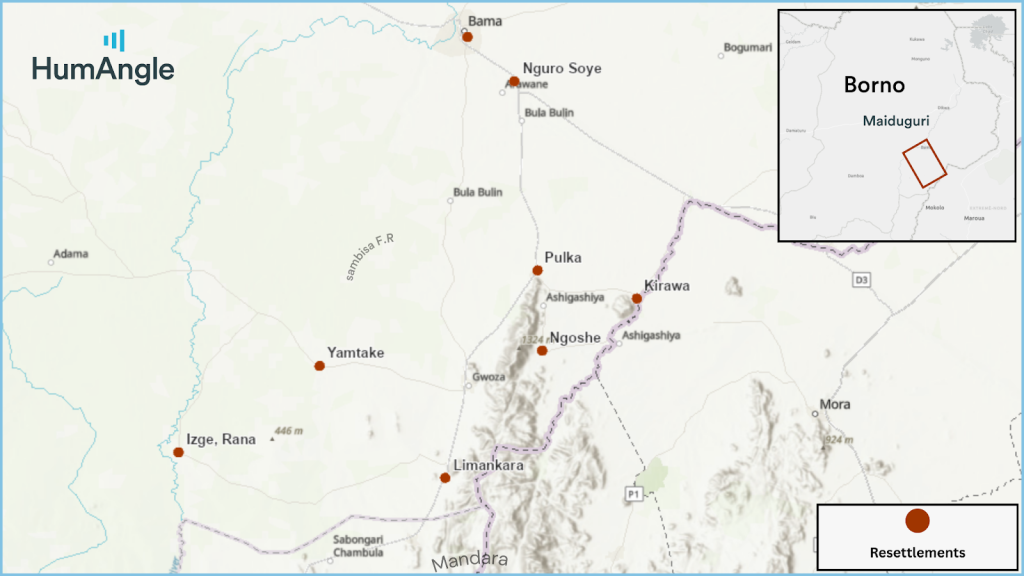As Boko Haram and its rival faction, the Islamic State West Africa Province (ISWAP), continue to escalate their violent campaigns across the Lake Chad region, resettled communities are facing fresh security threats, placing them at serious risk of renewed displacement and an impending humanitarian crisis.
The insurgents recently launched deadly attacks on several communities whose residents had only just returned to their ancestral homes in some parts of Borno State, northeastern Nigeria.
On Thursday, April 17, they stormed the community of Yamtake in Gwoza Local Government Area of the state, killing two soldiers and an unconfirmed number of civilians in what residents say was a coordinated nighttime assault.
The attack has heightened fears for the safety of thousands of internally displaced persons (IDPs) resettled in the region under government-led reconstruction initiatives. Yamtake, like many other resettled villages, has faced strict security measures, including restricted access to distant farmlands, due to security concerns.

A day before the attack at Yamtake, suspected members of the terrorist group attacked Pulka on Wednesday night, a community hosting thousands of resettled families who have not returned to their ancestral villages and towns, either due to the persistent threat of attacks or because those areas remain under terrorist control.
“There was heavy gunfire and sporadic shooting by Boko Haram when they attacked Pulka, but Alhamdulillah, the security forces and members of the Civilian Joint Task Force (CJTF) were able to chase them away,” a resident told HumAngle via phone.
Pulka is a heterogeneous rural community located between Gwoza and Bama Local Government Areas of the state. It is mainly occupied by farmers and traders who are involved in both local and cross-border agricultural trade. It still hosts displaced communities in makeshift camps, and the recent security threats pose serious safety issues.
In March, suspected Boko Haram insurgents attacked Nguro Soye, a resettled town in Bama LGA, killing at least three residents and injuring several others. HumAngle found that homes were torched and essential supplies looted during the raid.
Kidnappings have also become common in under-resourced resettlement sites, with victims often forced to sell everything they own, or go into debt, to pay ransoms for their loved ones.

Since 2020, the Borno State government has pursued an ambitious plan to return displaced families to dozens of communities once held by insurgents. Among these is Nguro-Soye, where more than 1,100 households from ten surrounding hamlets have been resettled into a mix of permanent and temporary shelters.
In Gwoza LGA, similar efforts have facilitated the return of residents to towns such as Pulka, Limankara, Ngoshe, Kirawa, and Izge.
However, critics say the resettlement drive has outpaced the provision of security.
“We have returned home, but we are living in fear.
There are no military patrols at night, and we sleep knowing the attackers could come back anytime,” a resident of Gwoza town told HumAngle.
Senator Ali Ndume, who represents the area in Nigeria’s National Assembly, condemned the Yamtake attack and called for a reassessment of the state’s security deployments. “We can’t afford to lose the progress made in rebuilding our communities,” he said.
As part of its renewed violent campaign, Boko Haram/ISWAP has also intensified the planting of improvised explosive devices (IEDs) on key highways across the Lake Chad region. In the past month alone, several IED explosions have been recorded, killing and injuring multiple civilians and security personnel.
In a disturbing escalation of events in the past week, two major bridges, one in Gujiba local government area of Yobe State and another in Biu local government area of Borno State, were damaged by IED explosions planted by the terrorist group. These incidents have severely impacted mobility, rendering entire routes unsafe and exposing commuters to increased risk of attacks, especially in already volatile resettled communities. The destruction of these vital infrastructures also threatens humanitarian access and regional economic flow.
Humanitarian groups and local media have warned for months that resettlement without adequate security could leave vulnerable populations exposed to reprisals and further displacement.
Resettled communities in Borno State’s Gwoza Local Government Area are facing renewed security threats due to escalating violence by Boko Haram and ISWAP in the Lake Chad region.
Recent attacks have targeted communities like Yamtake and Pulka, killing soldiers and civilians, and raising safety concerns for internally displaced persons resettled through government initiatives. Critics claim that resettlement efforts have outpaced necessary security measures, increasing vulnerability to insurgent reprisals and kidnappings, and prompting calls for a reassessment of security deployments.
The terrorist groups have been planting improvised explosive devices (IEDs) to target key infrastructures like bridges, thus further hindering mobility and humanitarian access and posing a threat to regional economic stability. Humanitarian organizations have been warning that resettlement without adequate security exposes displaced populations to violence and risks of further displacement, underscoring the urgent need for protective measures to consolidate gains in rebuilding efforts.
